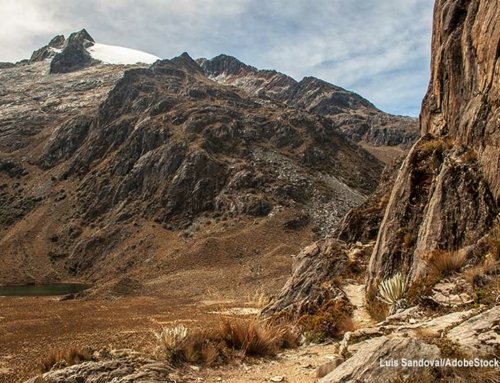COP28 or the 28th Conference of the Parties was held between November 30 and December 12, 2023. The venue was the city of Dubai, United Arab Emirates, at the Expo City Dubai Congress Centre, under the motto “Unite, act, deliver results”.
Estimated participation : 80,000 delegates, a figure that includes 140 heads of state and government and more than 5,000 media professionals.
Central objective : Maintain the increase in global temperature at 1.5°C until 2100.
Keys to the Conference : 1. Leave fossil fuels behind. 2. End subsidies for fossil fuels. 3. Triple renewable energies in seven years.
About COP conferences
These annual meetings have more than often not achieved the expected results. Many slogans, many speeches and many promises that soon fade away. We refer to the evidence, if we take into account that global temperature has broken its record 17 times in this 21st century alone, due to the increase in the greenhouse effect, due to our excessive CO2 emissions.
The first COP of the 21st century was COP7, Marrakech 2001. This means that from then until COP28 we have attended 22 COPs, the most important climate conferences of the year.
Between 2001 and 2023, 22 COPs and 17 temperature increases have been carried out. Yes, just as you read it. This is measurable evidence to gauge the lack of effectiveness of the COPs so far, and to call into question the binding nature of the Paris Agreement. Few reflect on a verifiable fact like this. Most of humanity is not even aware of this knowledge or its consequences.
The worst thing is that, despite the gravity that hangs over life on the planet, there are still many who put a spanner in the works trying to stop history. This is the case of the hydrocarbon industries that, knowing the damage they are doing, deny reality and intend to continue extracting more oil, more gas and more coal, which soon increase the PPM (parts per million of CO2 in the atmosphere). ), increasing the greenhouse effect, the main cause of global warming and climate change on Earth. (See some news about this at the end of this article).
This is how we arrived at COP28, see COP28 Information Center, which already seemed conflictive long before it began, just as it turned out in reality. It was not for less. Holding a climate conference in an oil country like the United Arab Emirates, UAE, ranked among the ten largest oil producers in the world, seems somewhat surreal. Since its announcement in January 2023, the decision was the subject of controversy, especially when it was reported that the president of the summit would be Sultan al Jaber , executive director of the state oil company ADNOC, the seventh in the world ranking.
Jaber ‘s words that shocked Cop28
The president of COP28 stated that “there is no science to support that the abandonment of fossil fuels is what will allow us to control climate change”. He also said: “eliminating fossil fuels would be like going back to the caves”. These statements caused a wave of criticism from various groups, although they were later qualified by the sultan himself, but the damage had already been done and put in check nothing less than the goal of not exceeding an increase of 1.5°C by the end of the century. , starting in 1750. But it also compromised the viability of the Paris Agreement and even the recommendations of the IPCC, the scientific group assembled by the United Nations to monitor and evaluate all global science related to climate change.
Good news about the Loss and Damage Fund
On the first day of COP28 activities (11-30-2023), the decision was made to launch the Loss and Damage Fund, which will compensate the countries most vulnerable to climate change. The United Arab Emirates, Germany, the United Kingdom, the United States and Japan, among other countries, have committed to contribute to this fund. In this regard, DW titled: “COP28: historic loss and damage fund approved”.
However, the UN Secretary General expressed that financial commitments are very limited and said that much more is needed to deliver climate justice to those on the front lines of the crisis.
The three keys to COP28
- Leave fossil fuels behind . This was the central issue of COP28 and the most controversial. On Tuesday, December 12, the last official day of COP28, no agreement had been reached. The draft presented was rejected by the parties and was the reason for the extension of the last day.
- End subsidies for fossil fuels . In November 2021, Pradeep Kurukulasuriya , Director and Executive Coordinator of “nature, climate and energy” at UNDP, wrote: “Each year, governments spend a staggering US$423 billion on average to subsidize fossil fuel consumption”.
During COP28, in a document that contemplates several topics, it has been included that “efforts towards the progressive elimination of coal must be accelerated; achieve emission-free road transport; and eliminate fossil fuel subsidies…”.
- Triple renewable energies in seven years . COP28 mediators achieved commitments to triple renewable energy capacity and double energy efficiency by 2030.
Rejection of draft extends conference
On Tuesday, December 12, the last official day of COP28, no agreement had been reached. Environmental groups and a number of countries expressed harsh criticism of the draft presented. Discussions continued late into the night on how to phase out fossil fuels.
In the text presented by the COP28 presidency, fossil fuels were mentioned and the door was opened to the reduction (not elimination) of their use and production. But many other doors remained open that would allow the use of fossil fuels in the coming decades, without a clearly expressed commitment to eliminate coal, oil and gas.
The controversy was between progressively reducing or phasing out fossil fuels such as oil, gas and coal, which forced overtime hours of discussions. According to the UN document, Antonio Guterres noted: “limiting global warming to 1.5°C, one of the key goals set in the historic 2015 Paris Agreement, will be impossible without the phasing out of all fossil fuels”.
Criticisms and opinions from various media about COP28
El Mundo headlined, “COP28: Division between petrostates in the time of the Climate Summit”.
“The EU’s harsh criticism of the draft, which described the text as ‘unacceptable and insufficient’, was joined by that of a large group of countries led by the United States, the United Kingdom, Australia and Japan”.
The National. “COP28 agreement receives criticism for its lack of forcefulness . Although everyone appreciated that it represents progress, there were many voices that criticized its lack of forcefulness and clarity in relation to the future of coal, oil and gas, and its gaps in financing and adaptation, especially with regard to the needs of the most vulnerable countries”.
Expansion. “Did COP28 achieve an agreement to phase out fossil fuels? Emissions from the burning of fossil fuels are – by far – the main driver of climate change”.
AFP (YouTube). Avalanche of criticism against OPEC for defending fossil fuels at COP28.
Europe Press. “Disappointment among NGOs at COP28: This is not the historic agreement the world needs”.
The opinion of the UN Secretary General
Antonio Guterres said: “It is important that the outcome of the Global Assessment clearly reaffirms the need to limit the increase in global temperature to 1.5°C and that this requires drastic reductions in emissions in this decade . In another message he stressed the inevitability of this decision in order to preserve the common home of all human beings”.
“To those who opposed a clear reference to phasing out fossil fuels during the COP28 Climate Conference, I want to say: whether you like it or not, phasing out fossil fuels is inevitable. Let’s hope it doesn’t come too late”, he emphasized.
SGK-PLANET’s opinion
We have been in this low-paid profession of environmentalism for almost twenty years. During this period we have been able to learn, analyze and write down a lot. For example, we have observed that in COPs there is a kind of dynamic that, in a simplified way, goes in this order: 1. Discussions, 2. Agreements, 3. Promises for later. Finally all of this is wrapped in an elegant gift-wrapped package, and offered to the world as a successful outcome of the main annual climate meeting, reaching the public through the wide variety of media that coexist today.
After a while, the beautiful initial words fall into the void, the euphoria fades, the promises are postponed, discarded and forgotten. Everyone goes about their daily lives as if nothing had happened, especially in this fast-paced and complex 21st century, where the majority “does not have time” even to read three lines.
The most obvious example of the failure of these climate summits is the collapse of the Kyoto Protocol, humanity’s most hopeful document, adopted in 1997 in the Japanese city, and demolished in the last hours of Copenhagen COP15, in 2009. That That night, the representatives of China, the United States, India, Brazil and South Africa, without the presence of the European representatives or the other countries, held a closed-door meeting and in just three pages they drafted a non-binding agreement that was not even submitted to vote. They only limited themselves to distributing the text for the knowledge of the parties.
We consider this unfortunate event as the starting point of climatic decline, something that we could call “Post-Kyoto Stage” , to name in some way the terrible handling of the environmental issue by Homo sapiens, whose consequences become apparent every year. more visible, bearable and countable .
This mismanagement is what has contributed to the global temperature breaking its record 17 times in just this century. As we already said, it has brought about: heat waves, drought, mega forest fires, mega floods, melting glaciers. , water scarcity, air pollution, famines, mass migrations, decline in biodiversity, etc. What seems like the script of an apocalyptic movie is nothing but the harshest and purest reality that we are experiencing right now.
Let’s not look at what the oil companies say but at what they do
We hope that this time, with COP28, the dynamic outlined above will not be repeated, but in advance we question the sincerity of the companies that produce fossil fuels, referring especially to oil companies, based on more than one hundred pieces of news that we have collected.
This is a long list of recent news, some dating even during the development of COP28, related to exploration, extraction, refining, financing, pipeline planting projects, etc. The mega capital invested and the volumes of oil involved, added to the extension of some of the projects, which in some cases extend until 2050, produce vertigo. It is not easy to believe that these actors are willing to stop projects and lose their huge investments. This news undermines the optimism expressed at the end of COP28.
Here is a selection of this news:
2023-11-29. Oldelval is preparing a new investment of US$ 1 billion to expand its 300,000 BD Neoquin pipeline network . Argentina
2023-11-27. Venezuela reaches agreements with half a dozen international oil companies after the end of sanctions.
2023-11-30. OPEC describes as erroneous the proposals to reduce investment in oil.
2023-12-02. Petrochina discovers an oil field with estimated reserves of 100 million tons in the central-north of the country.
2023-12-05. Bloomberg, Banking and Business: Investments in Latin American oil and gas could reach US$500 billion by 2030.
2023-12-05. Brazil goes to the dark side to squeeze its oil with the help of Saudi Arabia and OPEC.
2023-12-05. Russia seizes the largest oil find in 20 years in Iraq and believes it may have more crude than expected.
2023-12-08. OPEC urges its members not to sign any anti-fossil fuel agreements at COP28. Banking and Business.
2023-12-12. The US floods the oil market with a historic production record and ends OPEC’s dream.
Finally, it is time to give credits to the COPs
As much as we criticize the COPs and the United Nations, it is an irrefutable truth that without these conferences, achievements in the fight against climate change would not have been achieved, such as electromobility, the massive use of solar energy and wind energy and a constant campaign aimed at encouraging renewable energies and leaving fossil fuels behind.
Just as we put together a series of discouraging news, we are now going to post some excellent news taken from our dossier, which is already underway and many of which are put into service.
Range of 1,000 km and recharges in five minutes: the world leader in batteries promises cheap electric cars that are as practical as a gasoline one. Motorpassion
Japan inaugurates the largest nuclear fusion reactor in the world. D.W.
China designs giant nuclear-powered container ship. Europapress
Renault and Volkswagen are negotiating to join forces to manufacture an electric car for less than 20,000 euros. The country
Galán (Iberdrola) affirms that tripling renewables by 2030 is feasible and will mobilize more than 2 billion annually. The Energy Newspaper
Construction of the world’s largest hybrid solar module factory begins in Germany. Ecoinventos.com
Emirates inaugurates the largest solar thermal power plant in the world in Dubai. The Energy Newspaper
Clean hydrogen projects will double in the next five years. The country
Iberdrola and Schneider Electric promote the energy efficiency of the largest green hydrogen plant in Europe. D.W.
How to achieve more harvest and harm the environment less: this is how regenerative agriculture works. The country
Clean hydrogen projects will double in the next five years. The country
Iberdrola and Schneider Electric promote the energy efficiency of the largest green hydrogen plant in Europe. D.W.
Sandor Alejandro Gerendas-Kiss
Editor SGK-PLANET







Leave A Comment